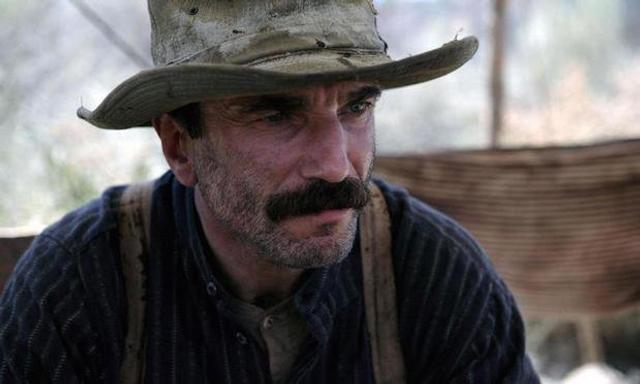As Daniel Day-Lewis turns 61 today, the actor has left behind acting for the second time in his career after an intriguing performance in Paul Thomas Anderson's Phantom Thread as the irascible Reynolds Woodcock.
Few actors working today can look back over their filmography in the way that he can.
Although not known for his prolific work, Day-Lewis has starred in one film every three or so years since 2012, taking a five-year hiatus between Jim Sheridan's The Boxer and Martin Scorsese's Gangs of New York. Known for his incredible attention to detail and method, often taking a physical toll on him, Day-Lewis is one of the most respected actors in Hollywood.
More to the point, he rarely put a foot wrong. Even with the so-so adaptation of the musical Nine, Day-Lewis was throwing it out as hard as he could and giving it socks. It's hard to know exactly what has caused him to quit acting.
Either way, Daniel Day-Lewis leaves behind an incredible legacy. Here's five of his best scenes.
5. THE CRUCIBLE - "God knows how black my sins are!"
Although he is somewhat derisively known as Dan "Yell" Day-Lewis, there really is no better actor out there who can be completely vulnerable and lay himself bare the way he does. The Crucible, based on Arthur Miller's play, might be very much of its time with its production design and speech - but the themes are transcendent and so is Day-Lewis' performance. Playing John Proctor, a man accused of witchcraft during the Salem Witch Trials, Day-Lewis' performance goes from frustration at the stupidity around to him, to this explosion of anger where he renounces God, to his final scene where he tears up his confession - knowing that it means his death, but preserves his name.
4. MY LEFT FOOT - "Con.. grat... ulations..."
Playing the artist Christy Brown was undoubtedly the role that broke Day-Lewis through the mainstream, and you only need to look at any scene in the film to know just how far he pushed himself. Day-Lewis famously stayed in character between setups and had stagehands and runners carry him into the next scene. The general feeling of resentment he got from them was funneled into his performance, which also took a physical toll on him as well. Yet, for all the hardships, it's all there on the screen. He's sweating out every scene and acting it as hard and as earnestly as he can.
3. GANGS OF NEW YORK - "I killed the last honourable man fifteen years ago."
Although Day-Lewis is known for his big, showy scenes of bravado and the like, it's in the smaller, quieter scenes that he's arguably more effective. Although Gangs Of New York is considered to be a lesser work of Scorsese, it still features one of Day-Lewis' finest performances as the criminal kingpin Bill The Butcher. After surviving an assassination attempt thanks to his protege, Leonardo DiCaprio, he shares an intimate moment with him about the "finest beating" he ever took. The catch, of course, is that the man he's speaking of is DiCaprio's father, Liam Neeson, and he's sworn to avenge him however he can. As you watch the scene, it's clear that Day-Lewis knows this and wants to show DiCaprio how much he respected his father, and how he has supplanted him as well.
2. IN THE NAME OF THE FATHER - "I pissed on it, I pissed on your stupid fuckin' name..."
Playing the wrongfully convicted Gerry Conlon alongside Pete Postlethwaite, Daniel Day-Lewis was nominated for Best Actor and secured himself as one of the finest actors of a generation. This scene, wherein he and his on-screen father are reunited for the first time since the arrests, is particularly potent. Day-Lewis' character just unloads all his pent-up anger and resentment on his father, who bares it all with a quiet resolve. It's really affecting, especially when you consider the context and Day-Lewis' relationship with his own father.
1. THERE WILL BE BLOOD - "I have a competition in me. I want no-one else to succeed."
If ever there was a text-book misanthrope, it's Daniel Plainview in There Will Be Blood and it's most accurately summed up in this utterly terrifying scene. Throughout the film, we see Plainview as someone who is generally curt with people, prone to anger, and generally distrustful. Here, at last with whom he believes to be his brother, he is finally able to open up - and what comes out of him is as black as the oil he digs out of the ground.









































































